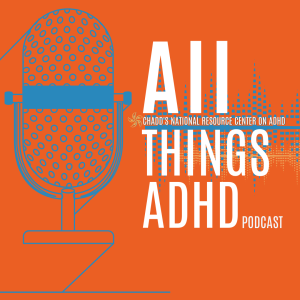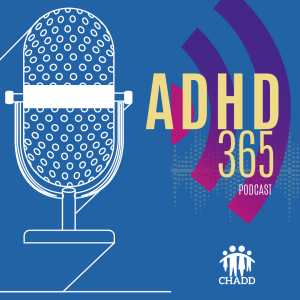All Things ADHD
2020-06
Episodes

Tuesday Jun 16, 2020
Treatment of Complex ADHD
Tuesday Jun 16, 2020
Tuesday Jun 16, 2020
Podcast Text Transcript
Complex ADHD is ADHD that co-occurs with one or more conditions that can complicate the symptoms of ADHD. Two-thirds of children with ADHD have at least one coexisting condition. These coexisting conditions may include oppositional defiant disorder (ODD), anxiety disorders, depression, learning disorders, autism spectrum disorders, intellectual disability, and tics (Tourette Syndrome).
Treatment of complex ADHD begins with treating the condition that is most prominent and may involve behavior therapy, parent training, or medication. When medication is used, stimulants are the first line of treatment. Non-stimulant medications may be considered when stimulants do not work. If learning disorders coexist with ADHD, academic interventions are needed.
In this ADHD 365 podcast, Dr. Tanya Froehlich offers expert information on complex ADHD, focusing on the conditions that often coexist with ADHD. She discusses the recommended treatments based on research for each of the conditions, and the options available when first-line treatments don't work.
Tanya Froehlich, MD, MS.
Dr. Tanya Froehlich is a professor of pediatrics at Cincinnati Children’s Hospital Medical Center in the Division of Developmental and Behavioral Pediatrics. She is a developmental-behavioral pediatrician and an ADHD clinical specialist. Dr. Froehlich serves on the national ADHD clinical practice guideline development committees for both the American Academy of Pediatrics and the Society for Development and Behavioral Pediatrics.
Learning Objectives:
What is complex ADHD?
Conditions that often coexist with ADHD
Recommended behavioral treatment including behavior therapy and parent training
Treatment for coexisting learning disorders
Medication options available for complex ADHD

Tuesday Jun 09, 2020
Health Disparities: Barriers to ADHD Diagnosis and Treatment
Tuesday Jun 09, 2020
Tuesday Jun 09, 2020
Podcast Transcript: https://chadd.org/podcasts/health-disparities-barriers-to-adhd-diagnosis-and-treatment/
Summary: What are the consequences of late diagnosis and treatment for ADHD in underserved and disenfranchised communities? Brandi Walker, PhD, shares her insights into what healthcare providers, parents, and educators can do to decrease health disparities in the United States.
Brandi Walker, PhD: Major Brandi Walker is an active-duty officer in the Army’s Medical Services Corps, serving as a clinical psychologist at Fort Bragg, North Carolina. She is a recent graduate of Howard University's clinical psychology program, where she specialized in children, adolescents, and families. She obtained a master’s in rehabilitative counseling from the University of Maryland, College Park, and has held licensure as a graduate-level, licensed alcohol and drug counselor, and certified rehabilitation counselor. An advocate for research, Walker currently leads a nationwide community health study on ADHD and sleep in the pediatric population.
Learning Objectives: 1. Learn potential diagnosis and treatment barriers for different communities 2. Learn how barriers affect African-American, Latino-American, and immigrant communities 3. Understand how access to care impacts academic achievement, relationships, and quality of life 4. Learn common gaps for school-aged children with ADHD and how it follows into adulthood 5. Understand how parents, teachers, and medical personnel can collaborate